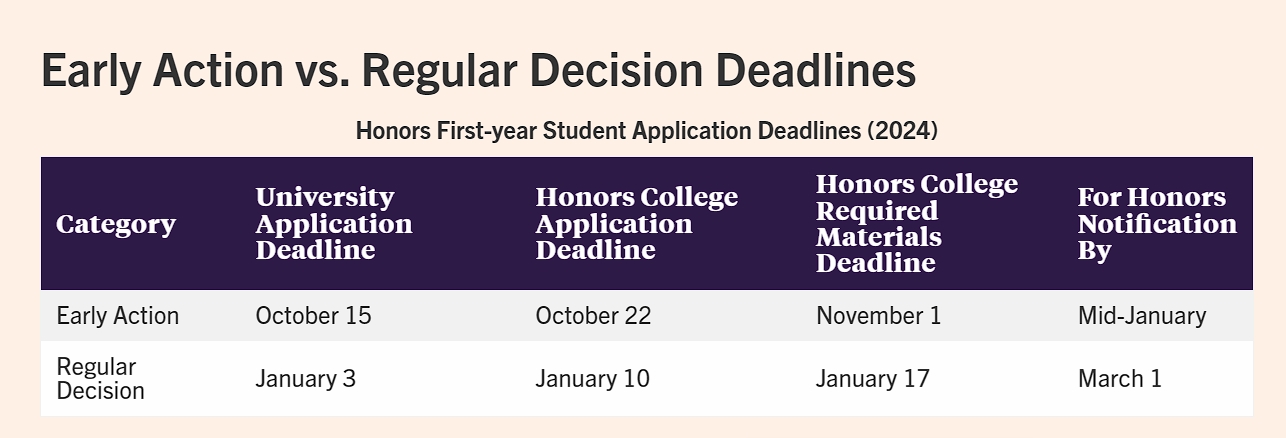College applications are a pivotal step in advancing your educational journey, and the Clemson supplemental essays play a crucial role in this process.
These essays offer a unique opportunity to showcase your personality, aspirations, and fit for Clemson University beyond what grades and test scores can convey.
As you embark on crafting your Clemson supplemental essays, it’s essential to approach them with thoughtfulness and strategic planning.
This guide will provide you with key insights and practical tips to help you create compelling essays that resonate with Clemson’s admissions committee.
By understanding the prompts, aligning your responses with Clemson’s values, and effectively communicating your unique qualities, you’ll be well-equipped to strengthen your application and stand out in the competitive admissions landscape.
Clemson essay prompts 2025
For the 2025 application cycle, Clemson University requires applicants to respond to two supplemental essay prompts. These essays are crucial components of your application, allowing you to showcase your personality, values, and academic interests. Here are the prompts:
Prompt# 1: The Clemson Family (Required, 200-400 words)
“Clemson University is driven by our shared purpose: to make a positive difference in the lives of others. How do you plan to make a positive impact at Clemson and in the community beyond?”
This prompt invites you to reflect on your potential contributions to both the Clemson community and the wider world. It’s an opportunity to demonstrate your understanding of Clemson’s values and how you align with them.
Prompt# 2: Academic Interest Essay (Required, 200-400 words)
“Describe your academic interests and how you plan to pursue them at Clemson University. Please include any majors, minors, concentrations, and/or academic programs that interest you.”
This essay allows you to articulate your academic passions and how they fit with Clemson’s offerings. It’s a chance to show that you’ve researched the university’s programs and have a clear vision for your academic journey.
Both essays have a word limit of 200-400 words, giving you enough space to develop your ideas while requiring concise, focused writing. These prompts are designed to help the admissions committee understand who you are beyond your grades and test scores, and how you might contribute to and benefit from the Clemson community.
Clemson essay tips
Let’s break down each prompt and explain what the admissions officers are looking to learn about you through these essays.
1. The Clemson Family Prompt:
“Clemson University is driven by our shared purpose: to make a positive difference in the lives of others. How do you plan to make a positive impact at Clemson and in the community beyond?”
What admissions officers want to know:
- Your understanding of Clemson’s values and community-oriented culture
- Your potential to contribute meaningfully to campus life and the broader community
- Your initiative and willingness to engage beyond academics
- Your ability to think both locally (on campus) and globally (in the wider community)
- Your personal values and how they align with Clemson’s mission
In this essay, supervisors are looking for evidence of your character, leadership potential, and commitment to service. They want to see that you’ve thought about how you can be an active, positive member of the Clemson community and that you have a vision for your impact beyond your time as a student.
2. Academic Interest Essay Prompt:
“Describe your academic interests and how you plan to pursue them at Clemson University. Please include any majors, minors, concentrations, and/or academic programs that interest you.”
What admissions officers want to know:
- Your academic passions and intellectual curiosity
- How well you’ve researched Clemson’s academic offerings
- Your ability to connect your interests with specific programs at Clemson
- Your potential to thrive in Clemson’s academic environment
- Your long-term academic and career goals
- Your preparedness and enthusiasm for your chosen field(s) of study
In this essay, supervisors are assessing your academic fit with Clemson. They want to see that you have a clear direction for your studies and that you’ve thought about how Clemson’s specific programs, courses, or resources can help you achieve your goals.
They’re also looking for evidence that you’re proactive in pursuing your interests and that you’ll take full advantage of the academic opportunities Clemson offers.
Clemson application deadline
Understanding and adhering to Clemson University’s application deadlines is crucial for prospective students. The university offers two main application cycles:
Early Action and Regular Decision.

Here’s a breakdown of the key dates:
Early Action Deadlines:
October 15: This is the deadline to submit your application for Early Action consideration. Early Action is non-binding but provides the benefit of receiving an admissions decision earlier.
November 1: This is the final date to complete two important tasks:
- Submit any outstanding items listed on your checklist in your Clemson admissions portal.
- Decide whether you want your SAT/ACT scores considered in the admissions review for Early Action.
Regular Decision Deadlines:
January 3: This is the deadline to submit your application for Regular Decision. This date is also crucial for scholarship consideration, so if you’re hoping to be eligible for Clemson scholarships, ensure your application is in by this date.
January 8: This date marks two important deadlines:
- It’s the last day to submit any outstanding items listed on your checklist in your Clemson admissions portal.
- It’s also the final day to decide whether you want your SAT/ACT scores considered in the admissions review for Regular Decision and for scholarship consideration.
These deadlines highlight the importance of early preparation and timely submission of all required materials. It’s advisable to submit your application and supporting documents well before the deadlines to avoid any last-minute technical issues or delays.
Remember, the admissions portal checklist is a crucial tool in this process. Regularly check your portal to ensure all required items are submitted and to stay updated on your application status.
Clemson supplemental essay examples
While it’s important to note that these are fictional examples and your essays should be personal and unique to your experiences, here are some sample responses to Clemson’s supplemental essay prompts to give you an idea of effective approaches:
1. The Clemson Family Prompt:
“As a first-generation college student, I plan to make a positive impact at Clemson by starting a mentorship program for other first-gen students. Drawing from my own experiences navigating the college application process, I want to create a support network that helps these students feel more confident and prepared for university life. Beyond campus, I aim to extend this program to local high schools, partnering with Clemson’s Emerging Scholars Program to reach rural students who might not otherwise consider college. By sharing my journey and the opportunities Clemson has provided, I hope to inspire others to pursue higher education and contribute to the cycle of positive change that defines the Clemson family.”
This example effectively:
- Connects the student’s personal background to their goals at Clemson
- Outlines a specific plan for campus involvement
- Extends the impact to the broader community
- Demonstrates knowledge of existing Clemson programs
2. Academic Interest Essay:
“My passion for sustainable agriculture was sparked during a summer internship at a local organic farm. At Clemson, I plan to pursue this interest through the Plant and Environmental Sciences major, with a concentration in Sustainable Crop Production. I’m particularly excited about Dr. Sarah Johnson’s research on drought-resistant crop varieties and hope to contribute to her lab work. Additionally, Clemson’s Student Organic Farm offers a unique opportunity to apply classroom learning in a hands-on setting. I also plan to minor in Agricultural Business Management to gain the entrepreneurial skills needed to promote sustainable farming practices in my community. Ultimately, I aim to combine scientific innovation with practical business knowledge to address food security challenges in my home state of South Carolina.”
This example effectively:
- Clearly states the student’s academic interests and their origin
- Mentions specific Clemson programs and faculty relevant to these interests
- Outlines a clear academic plan, including major and minor
- Connects academic interests to future career goals and community impact
- Demonstrates research into Clemson’s offerings
Remember, these are just examples. Your essays should reflect your unique experiences, interests, and goals. Be specific about how Clemson’s programs align with your aspirations and how you plan to contribute to the university community. Use concrete examples from your life to illustrate your points and show, rather than tell, why you’re a great fit for Clemson.
Conclusion
Crafting compelling Clemson supplemental essays requires thoughtful reflection and authentic expression. These essays are your opportunity to showcase your unique qualities and demonstrate how you’ll contribute to the Clemson community.
Focus on addressing the prompts with specificity and passion, highlighting your genuine enthusiasm for joining the Clemson family.
By aligning your personal experiences and aspirations with Clemson’s values of community engagement, academic excellence, and personal growth, you’ll create essays that resonate with admissions officers.
Remember, your unique voice and perspective are your greatest assets in making a lasting impression and strengthening your application to Clemson University.
Frequently asked questions
Does Clemson have any supplemental essays?
Clemson University does not require applicants to submit supplemental essays for general admission. However, if you’re applying to the Honors College, you will need to complete additional essay prompts as part of that application process.
Should I submit my personal essay to Clemson?
While Clemson doesn’t require a personal essay for general admission, submitting one is highly recommended. It provides an additional opportunity to showcase your personality, experiences, and writing skills to the admissions committee.
How hard is it to get into Clemson?
Clemson is considered moderately selective. For a recent admissions cycle, 60,122 students applied, and 22,879 were accepted, resulting in an acceptance rate of approximately 38%. Of those accepted, 4,494 students enrolled. The middle 50% of admitted students had SAT scores ranging from 1240 to 1400 and ACT scores between 28 and 32. While these numbers indicate Clemson is competitive, it’s important to note that admission rates and test score ranges can vary from year to year depending on the applicant pool and other factors (source).
What SAT score is required for Clemson?
Clemson doesn’t have a strict SAT score requirement. Based on recent admissions data, the middle 50% of admitted students had SAT scores ranging from 1240 to 1400. However, it’s important to note that these numbers represent a range, not a minimum requirement. Clemson considers applications holistically, taking into account various factors beyond test scores.
What GPA is required for Clemson?
Clemson doesn’t publish a minimum GPA requirement. However, the average weighted GPA for admitted students is usually around 4.43. Competitive applicants typically have a strong academic record with mostly A’s and B’s in challenging courses.
What ACT score is required for Clemson?
There’s no fixed ACT score requirement for Clemson. According to recent data, the middle 50% of admitted students scored between 28 and 32 on the ACT. As with SAT scores, these figures represent a range rather than a cutoff. Clemson reviews applications comprehensively, considering various aspects of a student’s profile beyond standardized test scores.
Is Clemson Honors College hard to get into?
Yes, admission to Clemson’s Honors College is highly competitive. While specific statistics aren’t published, successful applicants typically have scores and GPAs well above Clemson’s general admission averages and demonstrate significant extracurricular involvement and leadership.
Is Clemson University expensive?
Clemson’s costs vary based on residency status. For South Carolina residents, the estimated annual cost is $29,862, including $15,554 for tuition and fees. Non-residents face higher expenses, with a total of $53,806 per year, including $39,498 for tuition and fees. Room and board ($12,872) and books ($1,436) are the same for all students (source).







